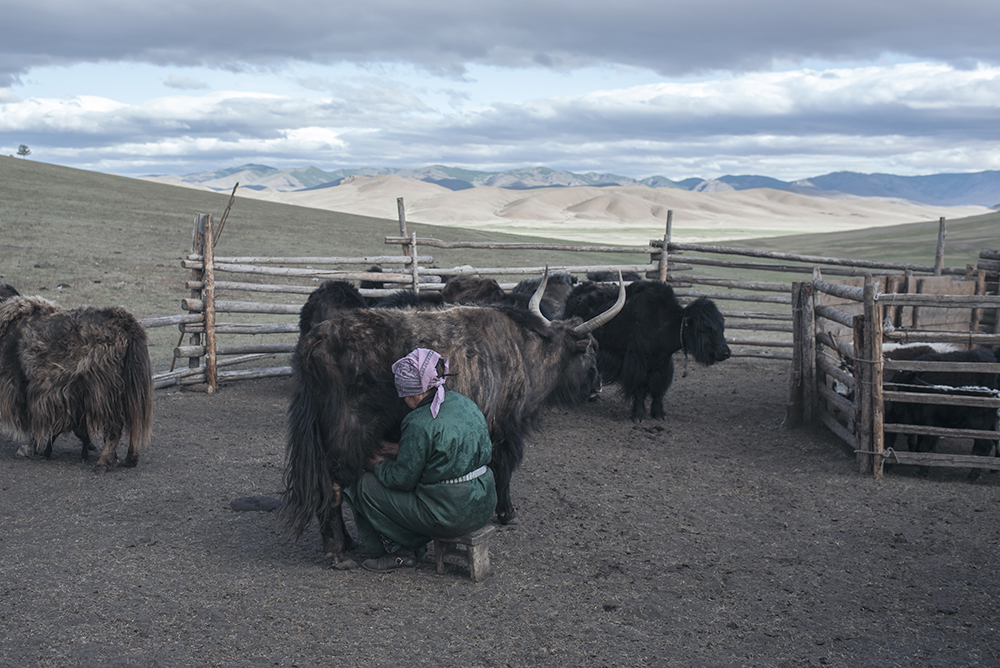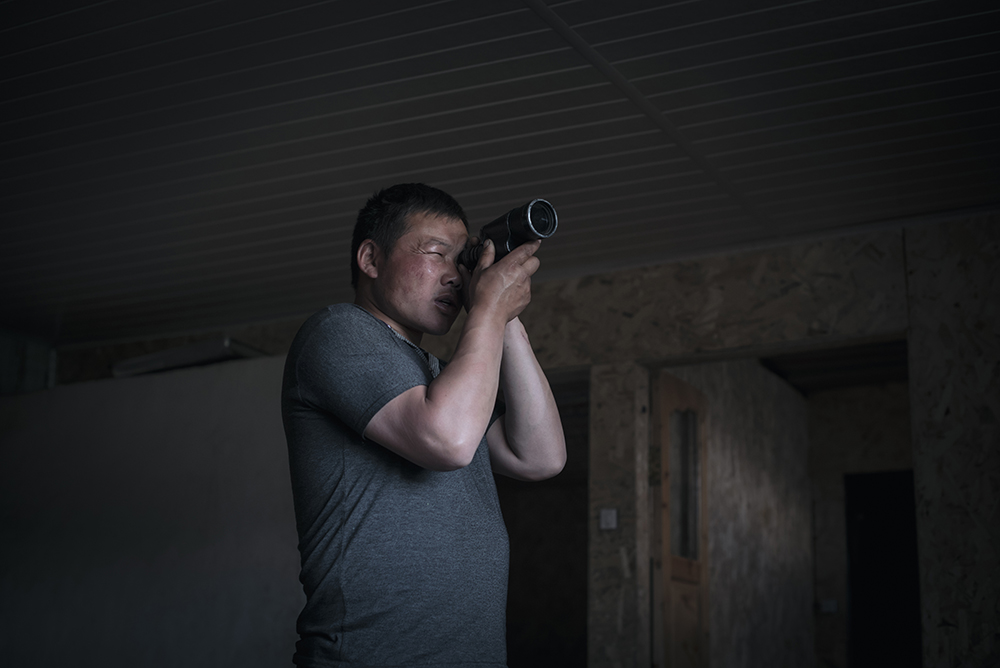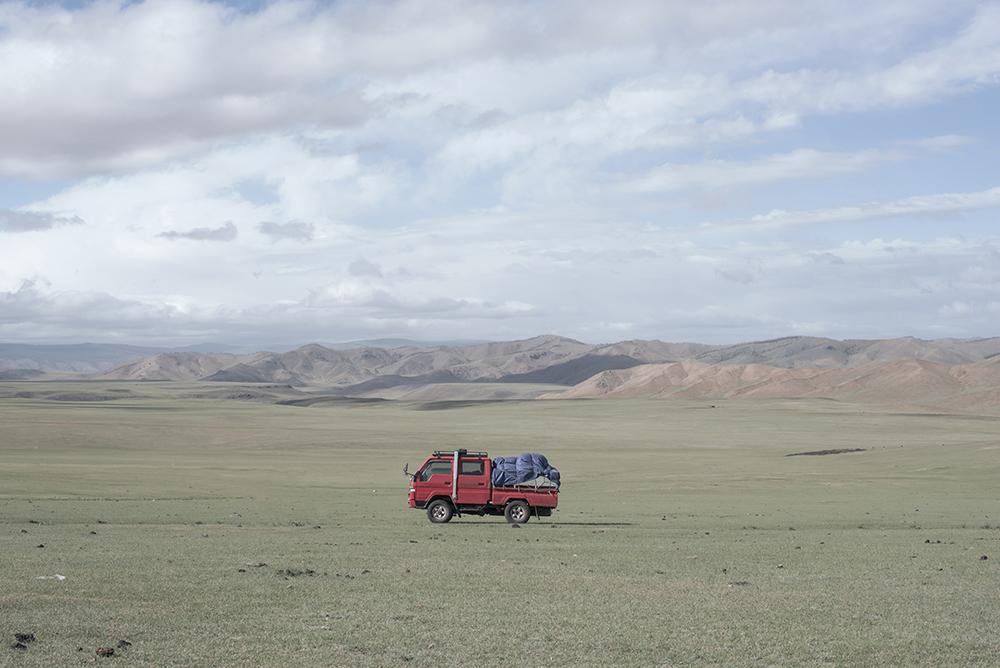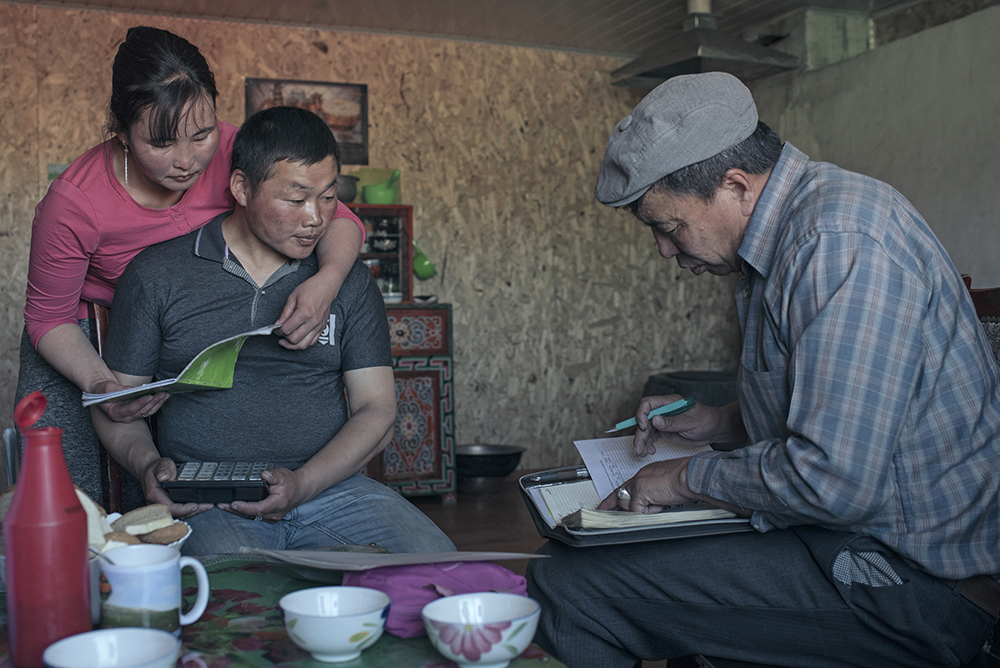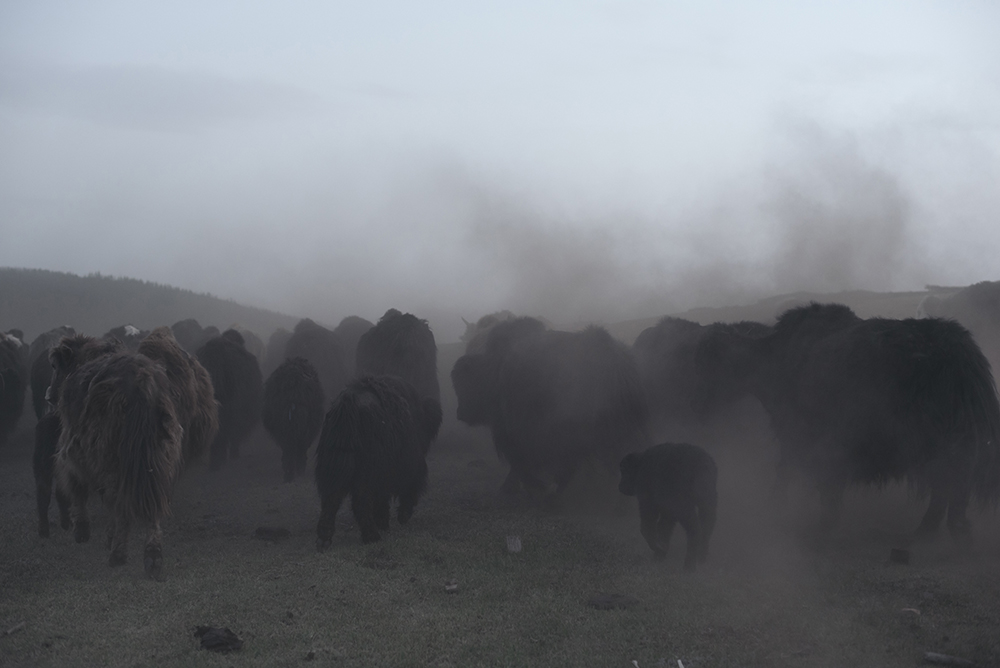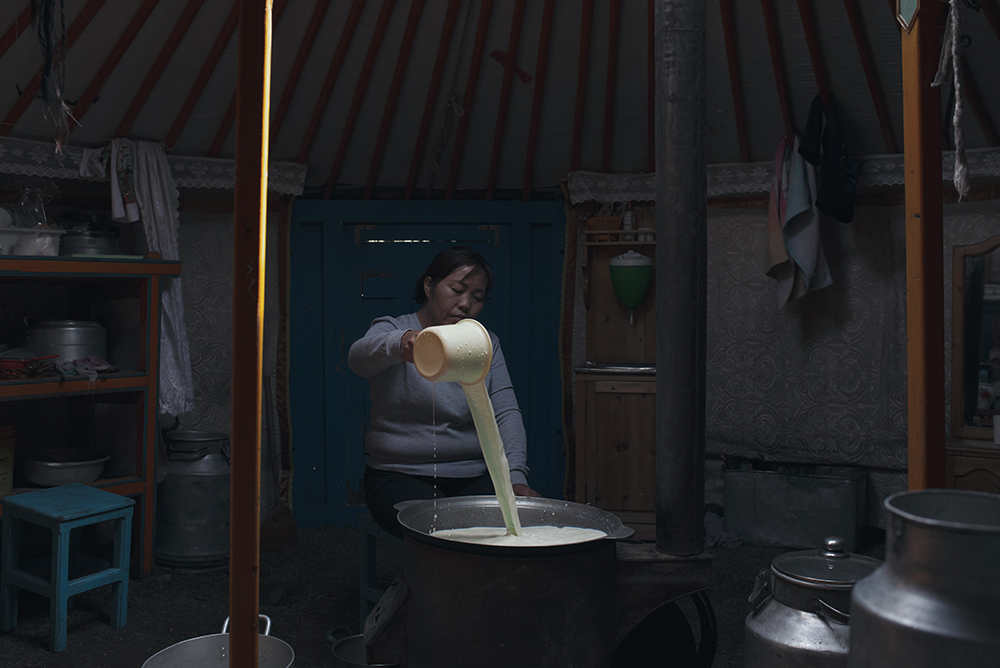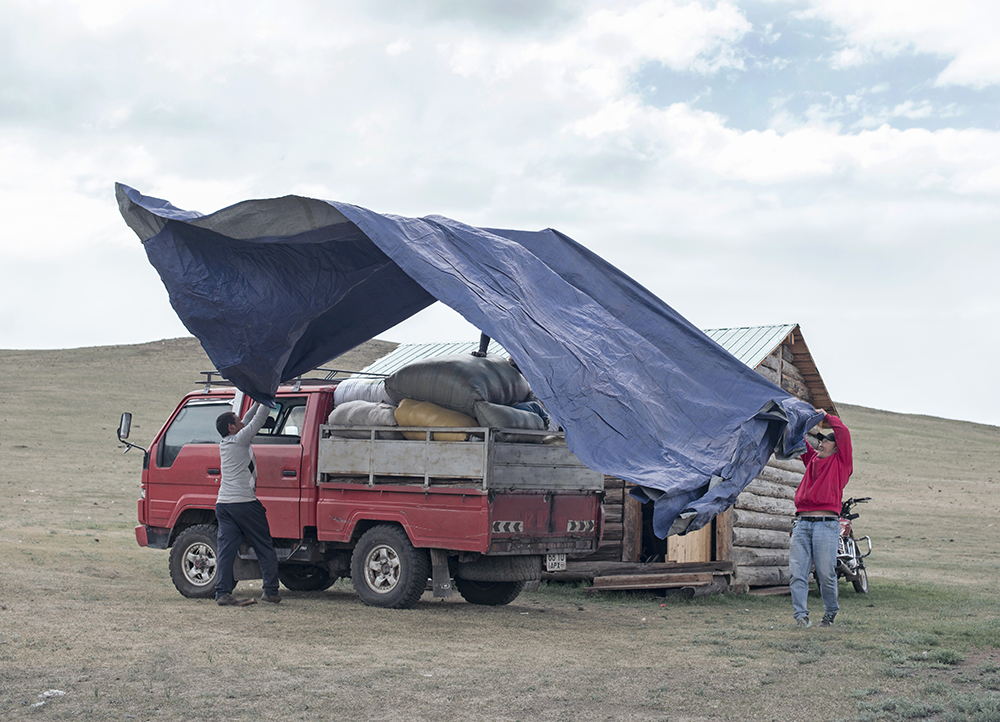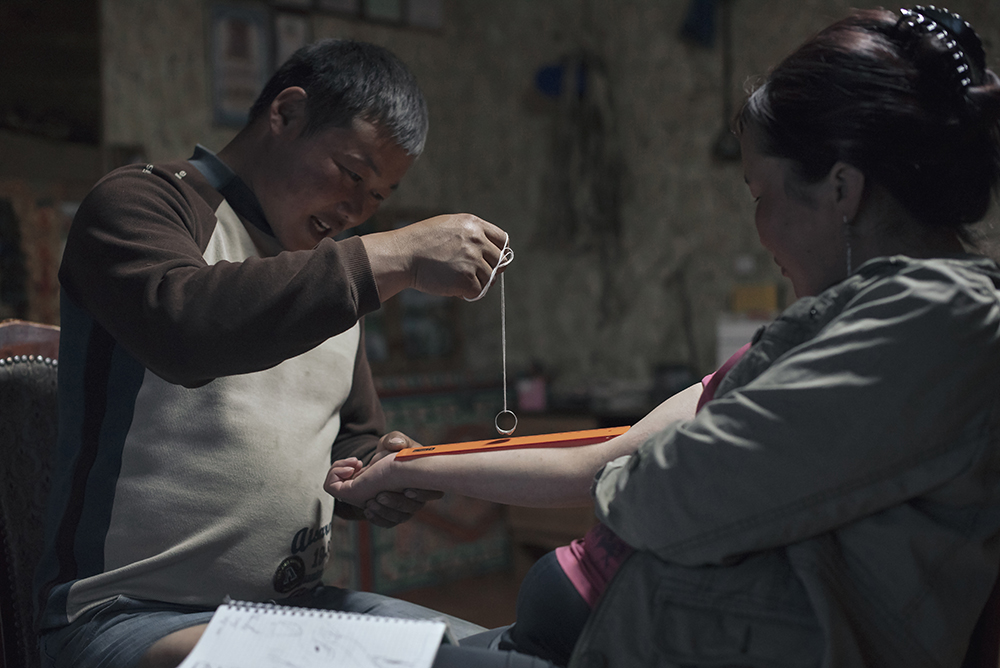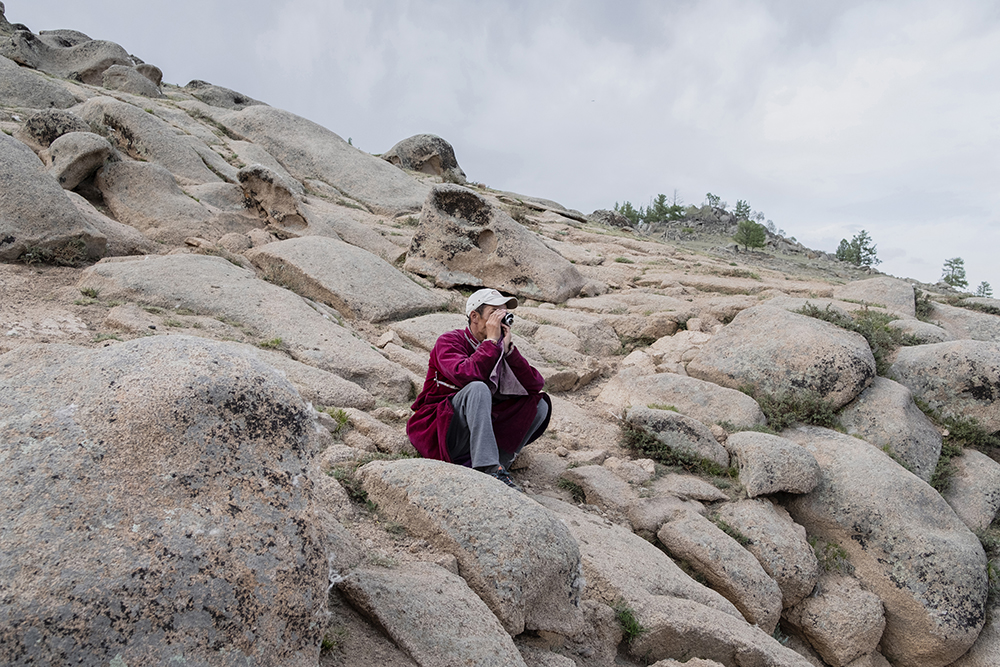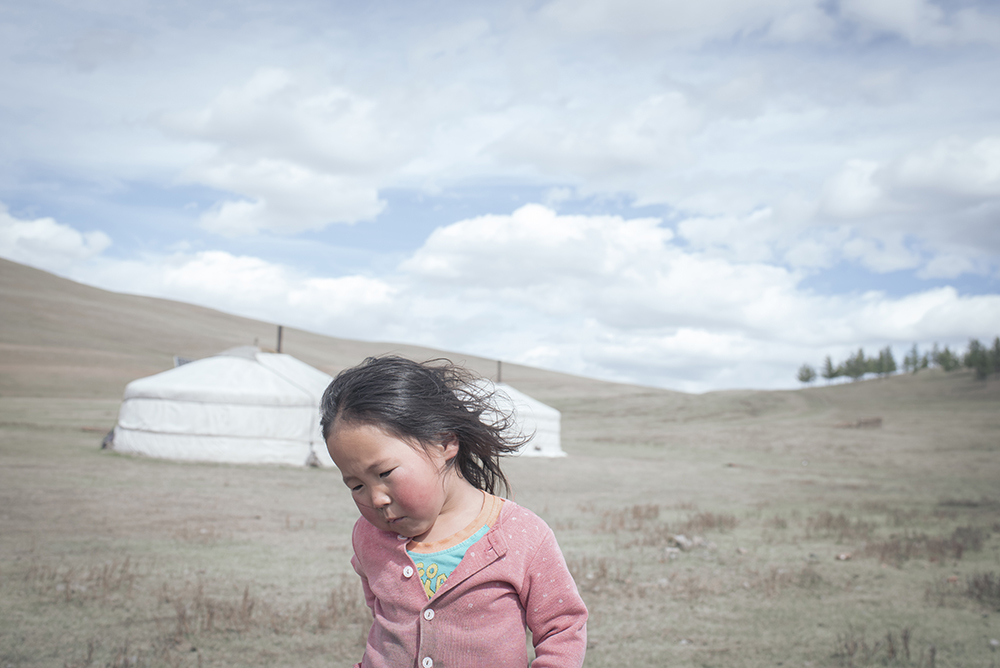The Silence of Happiness
Didier Bizet
2019 — Mongolia
About this series
Each year between 10,000 and 20,000 nomads migrate to the capital of Mongolia, making the economy and future of nomadic life increasingly uncertain. In 2010, in order to support the farmers, a Mongolian man, Bayarma-gnai, opened the Arvidjin Delgerekh Cooperative. The cooperative works daily alongside farmers to raise yaks for wool and milk. Nygmdorj and his wife Erdenetsetseg, Galbadrakh and Terbish, Budzagchaa and Dorjkhand, are three farmer couples who have joined the cooperative. They are now more serene in the face of the rising price of yak fiber. The price of a kilo of yak fiber has risen from 1500 MNT (0,5 €) to 22000 MNT (7,8 €) in a few years.
Since they joined the ccoperative, the nomads work more and feel less isolated. The cooperative now has nearly 800 fami- lies among its members. It was voted by the Minister of Agriculture as the best cooperative in 2017 for its efficiency, fair trade and veterinary advice to farmers. With 66 million domesticated animals, Mongolian nomads want above all to maintain their cultural and economic way of life. With the help of Arvidjin Delgerekh’s experts, farmers see a glimmer of hope for their future, but the same cannot be said for those who take the road to Ulaanbaatar.
Photographer: Didier Bizet
Nationality: French
Based in: Paris, France
Website: www.didierbizet.com
Instagram: @didierbizet
Didier Bizet used to work as art director in advertising agencies. Since 2015, he has devoted himself to photography. He loves exploring the former countries of the Eastern Bloc and capturing its melancholy.
Didier Bizet is a graduate of the Ecole Nationale Supérieure des Beaux-Arts and has a degree in art history. He has publications in the international press. He received in 2020 a Sony Awards for his series Baby boom and has been featured in 2020 at the festival Visa pour l’image.
His latest book «Grâce à elle» was a finalist for the HIP 2021 prize and his publishing house Revelatœr has been elected publisher of the year at the HIP 2021 prize.



